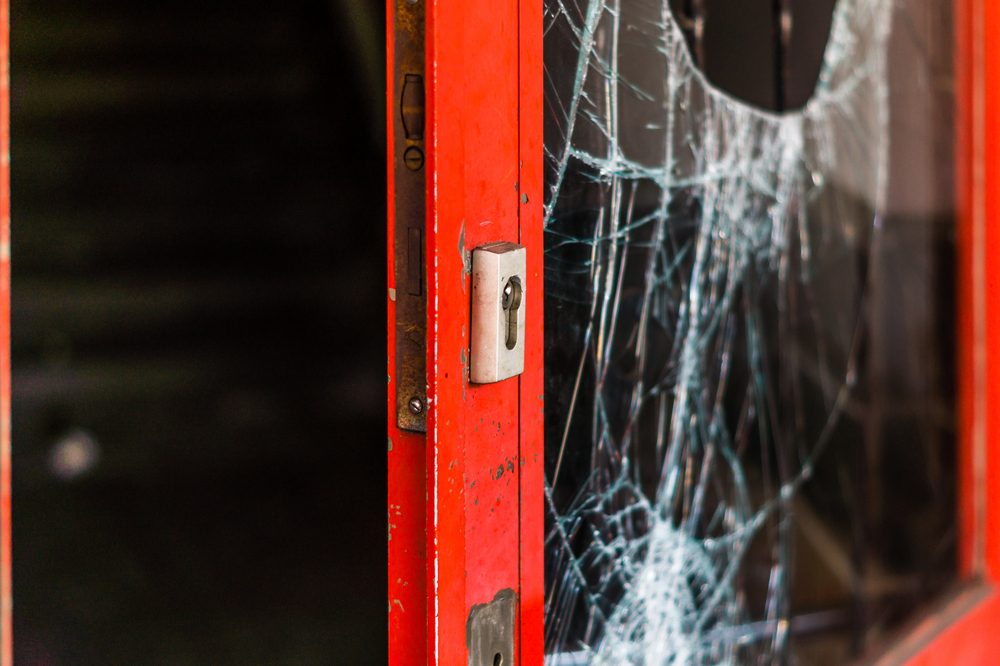Commercial Lease: Who Replaces Damaged Building Property After a Burglary?

By: Big “I” Virtual University Faculty
During a burglary at a commercial insured’s rented premises, a security door at the rear of the premises was extensively damaged and required replacement. The carrier is declining to pay for the door based on its interpretation of the lease that there is no obligation for the tenant to pay for the building owner’s property. The agent contends that based on the lease and the policy, there should be coverage, referring to the coverage for building property of others.
Q: Is the landlord or tenant responsible for replacing a door after a burglary?
Response 1: We’d need to see the policy, but based on the lease, I agree with the insurance company. While under the “Tenant’s Duty of Maintain Premises” section of the lease the tenant has the obligation to “make all needed repairs to the Premises,” including “all doors and door frames”, the following lease provisions support my conclusion that the door replacement is the landlord’s responsibility:
Condition of Premises. With this provision, the tenant has the obligation to “repair or replace any damage or injury to all or any part of the Premises caused by the Tenant or any of the Tenant’s Agents.” Here the damage was caused by the burglars; the tenant has no repair obligation.
Damage or Destruction. “If by fire or other casualty, the Premises are damaged, or partially destroyed, to the extent of less than 25% of the replacement cost thereof, the Landlord shall restore the Premises to the condition existing prior to such casualty.” The door value is far less than 25% of the replacement cost of the premises, so the landlord has the obligation to restore it.
Tenant’s Insurance. “Tenant shall maintain ‘all risk’ casualty insurance upon all property in the Premises owned by the Tenant or for which Tenant is legally liable.” The tenant does not own the door and is not legally liable for the criminal acts of the burglars.
Landlord’s Maintenance. “Notwithstanding anything in the Lease to the contrary, Landlord shall maintain and repair…exterior walls and structure of the Property except to the extent damage is caused by the Tenant.” The door is part of the structure the landlord is required to repair since the damage was not caused by the tenant.
Operating Expenses and Impositions. The tenant is required to pay its share of the “Operating Expenses” which include “any and all insurance premiums and other costs of all insurance coverages which the Landlord maintains with respect to the Center.” This tenant is paying their share of the landlord’s building insurance premium. It is unreasonable for the landlord to expect the tenant to pay to replace the door given that the tenant has helped pay for the building insurance that covers the door replacement.
Response 2: This is a legal question based on the interpretation of a lease agreement and I am not an attorney. However, it appears from my very quick perusal of the lease that this is a double net lease and not a triple net lease. I found provisions requiring the tenant to pay taxes and fees and maintenance, but nothing requiring the third element of the insuring of the building. Therefore, I could not find any insurable interest in the real estate for the tenant.
Response 3: The carrier seems to be correct. If a lease creates a legal, contractual obligation to maintain physical real property, the tenant would be responsible for paying for the door repair and therefore the tenant’s property coverage would pay for it—or if the tenant was negligent in causing building damage, its liability policy would pay. Neither seems to be the case here, so the landlord, who suffered the direct financial loss, should have coverage for that repair or replacement.
This question was originally submitted by an agent through the Big “I” Virtual University’s (VU) Ask an Expert service, with responses curated from multiple VU faculty members. Answers to other coverage questions are available on the VU website. If you need help accessing the website, request login information.
This article is intended for general informational purposes only, and any opinions expressed are solely those of the author(s). The article is provided “as is” with no warranties or representations of any kind, and any liability is disclaimed that is in any way connected to reliance on or use of the information contained therein. The article is not intended to constitute and should not be considered legal or other professional advice, nor shall it serve as a substitute for obtaining such advice. If specific expert advice is required or desired, the services of an appropriate, competent professional, such as an attorney or accountant, should be sought.










